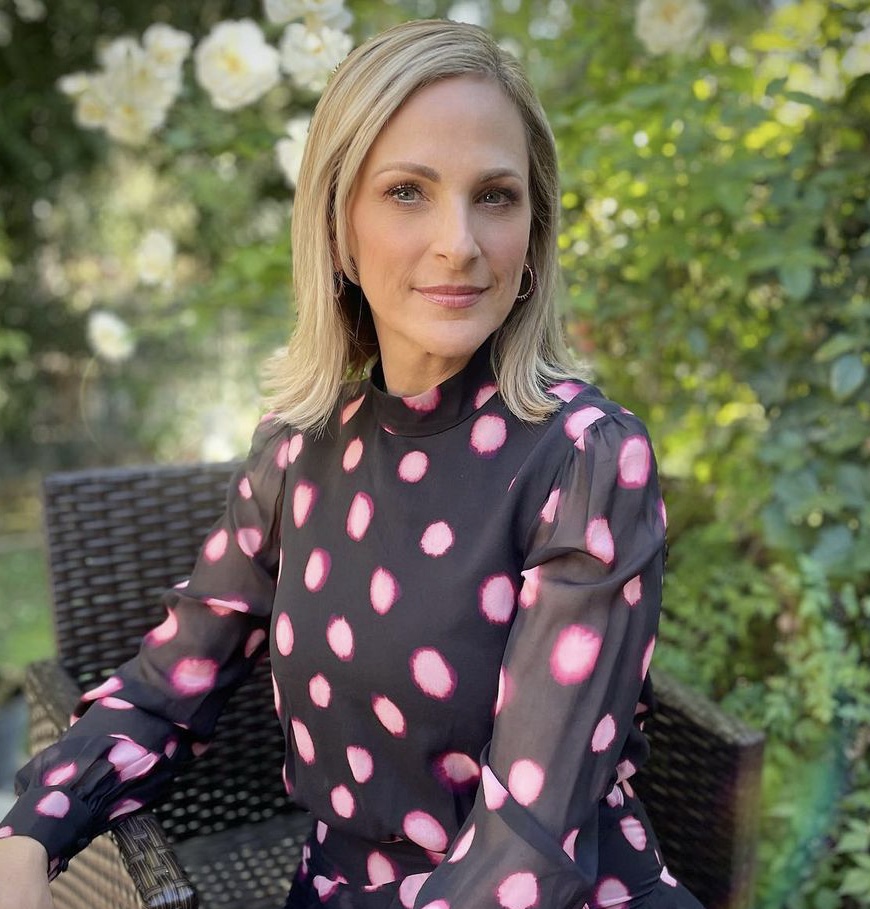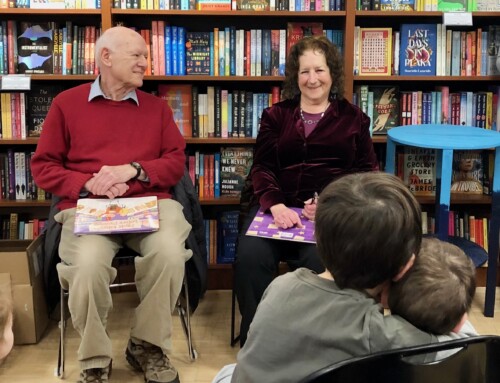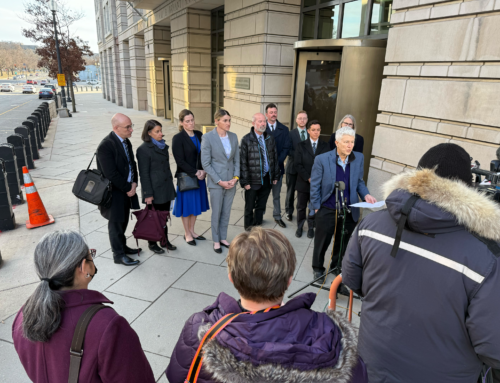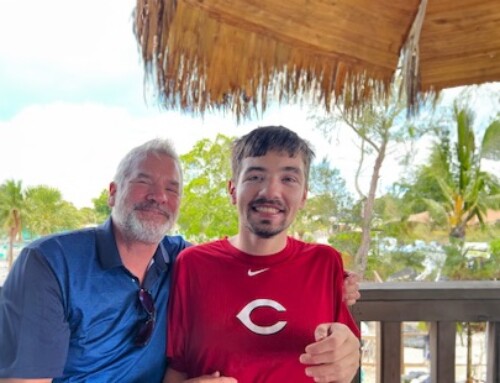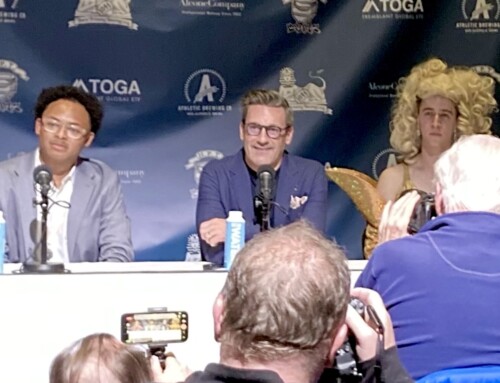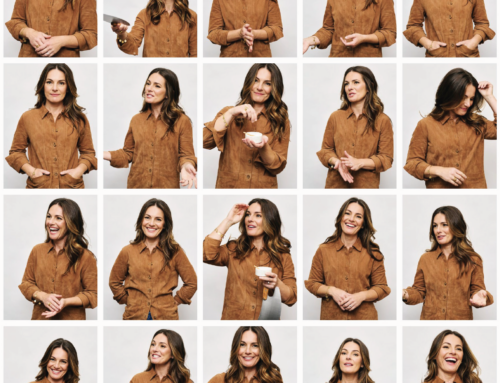The deaf actor and Academy Award winner discusses her new film and inspiring journey.
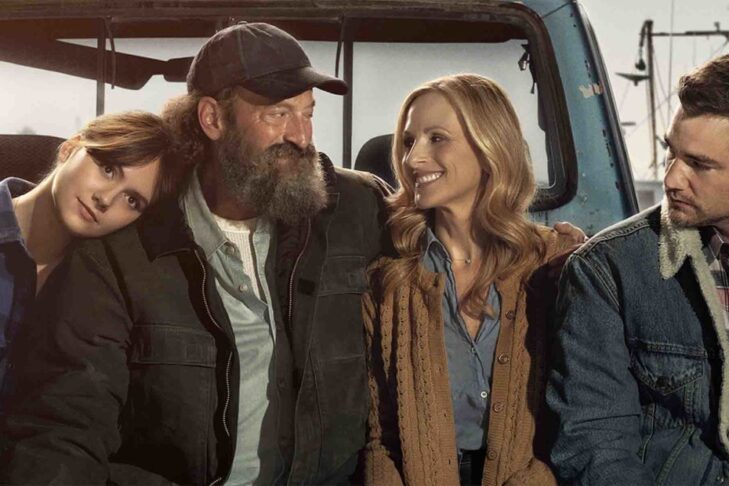
Marlee Matlin in “CODA” (Promotional still)
In 1987, Marlee Matlin made Academy Awards history as the first deaf actor to be nominated for—and to win—an Oscar. At 21, she was also the youngest to win the best actress award. The film was “Children of a Lesser God,” and Matlin’s record still stands today. Matlin’s most recent film, “CODA”—set in Gloucester—has been nominated for three Oscars, including best picture.
The film tells the story of 17-year-old Ruby, the sole hearing member of a deaf family—a CODA, “Child of Deaf Adults”—whose life revolves around acting as an interpreter for her parents (Matlin plays her mom) and working on the family’s struggling fishing boat. But when Ruby joins her high school’s choir club and discovers a gift for singing, she’s torn between the obligations she feels to her family and the pursuit of her own dreams.
In 1988, Matlin was my first big interview. As a novice freelance writer, I was ill-prepared to navigate a press conference at a major outdoor Boston fundraiser. I was a lip reader who wore two hearing aids. I could not understand conversations unless they were clear, loud and repeated more than a few times. I was able to read lips and facial expressions. I knew sign language.
As the throng of reporters tossed out their queries, I remained silent. I couldn’t hear their questions nor Matlin’s responses well enough to write them down. I feared repeating a question that had already been asked. After the press conference concluded, I reached out to Matlin to ask my questions. We were able to sign and talk. It was an unforgettable night.
We met again in 2014. Matlin was back in Boston doing a reading from her book, “I’ll Scream Later.” I stood at the book-signing table and finally made my way to her. I explained that I had interviewed her eons ago and remembered her interpreter, Jack. I had eyesight then, I told her. Matlin and I exchanged hugs. It was another eight years before we would connect again.
Raised in a Reform Jewish household, Matlin attended a synagogue for the deaf and after studying Hebrew phonetically, was able to learn her Torah portion for her bat mitzvah. As recently as Jan. 31, she was the keynote speaker at Jewish National Fund-USA’s virtual event kicking off Jewish Disability Awareness, Acceptance and Inclusion Month.
Matlin’s optimism, courage and defiance have established important, trailblazing messages throughout the world, including the message that it’s time to open doors to people who are deaf, to all disabilities, without apologizing for having any limitations. She’s a warrior in the face of disability injustice.
When the Oscar nominations were announced earlier this month, were you watching? Can you describe your reaction to “CODA” being nominated?
I was watching online, and I was elated for the cast and entire crew behind “CODA.” It had been a long 35 years since a film with deaf actors had been nominated for multiple Academy Awards, and I was just so happy for everyone!
Attending the Oscars is not unfamiliar to you, having won best actress in 1987 for “Children of a Lesser God.” What makes this time on the red carpet different?
Hopefully, if we are invited, there will be more than just one deaf actor on the red carpet—there will be three of us! As I’ve always said, I am so humbled and honored to have been the first deaf person ever nominated and also to win an Academy Award, but I’ve always wanted there to be others as well. I represent a vibrant and talented pool of actors who are deaf, and it’s about time that others, like Troy Kotsur, who was nominated for best supporting actor, were recognized as well.
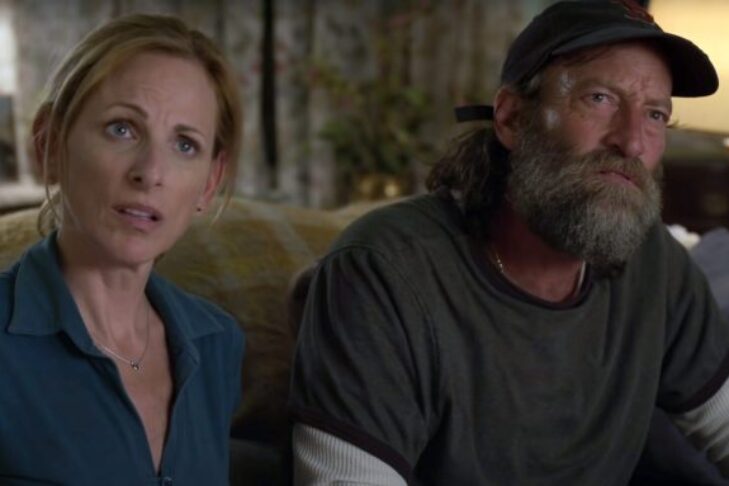
Marlee Matlin as Jackie Rossi and Troy Kotsur as Frank Rossi in “CODA” (Promotional still)
“CODA” was filmed on location in Greater Boston, including Berklee College of Music, as well as Gloucester and Beverly. What are your impressions of the area, and did you discover a local favorite dish, place or restaurant?
I just spoke to Ellen DeGeneres yesterday about how much I loved the Boston and Gloucester/Beverly area. The people, the places and dining choices! We talked about our favorite place to go for ice cream near Rockport; it’s the best. The whole area is a slice of heaven.
“CODA” is also nominated in several categories at the BAFTA awards, taking place March 13. Do you feel an equal amount of excitement?
I believe one should never take nominations lightly or for granted; they are all wonderful. I do hope that people will use these award ceremonies to check out our wonderful film and consider it when voting for future awards. But it’s so hard to predict because every film nominated, though so different, is worthy of the attention and nominations.
What are your plans for Oscar night on March 27?
I plan to be glued to that television, or if I am fortunate to be invited, to that stage inside the auditorium. Fingers crossed for Troy Kotsur, [writer-director] Sian Heder and “CODA” all the way!
As a woman who wears many hats—mother of four children, wife, actress, public speaker, with involvement in numerous charity organizations, how do you do it all? What brings you the most joy or personal satisfaction?
I have a great wall schedule/calendar that keeps everything that I need to be reminded of in one place, a great husband who backs me up whenever I go out of town and a great team that keeps me sane with constant updating as to my schedule, that helps me look great and [tells me] where I should be at what time! What gives me the most personal satisfaction? Being able to be in bed by 9! I need my beauty sleep every night!
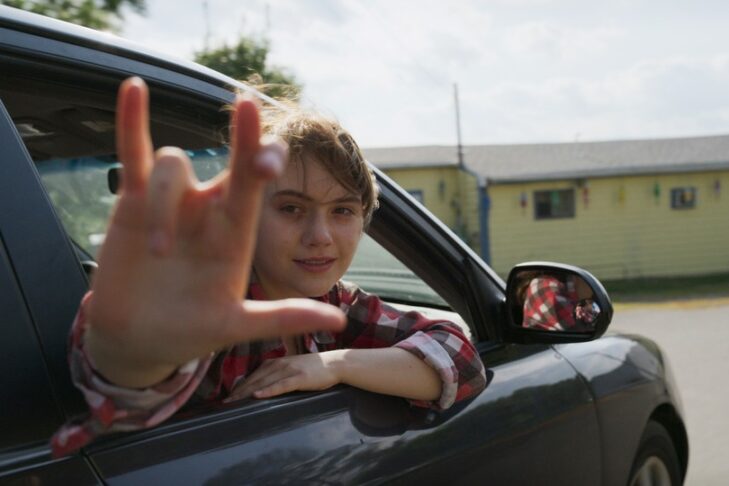
Emilia Jones as Ruby Rossi in “CODA” (Promotional still)
Do you see Hollywood and other industries as being more accepting and open to deaf and blind people? And what are your feelings about non-deaf/blind actors portraying deaf/blind characters?
As I’ve said, parts that are written as deaf or deaf/blind or disabled should not be played by non-deaf or non-disabled as if we were costumes to put on and take off at the end of the day. There is a sense of authenticity that is lost, particularly as it relates to sign language and portraying a person who is deaf when the actor has not lived or spoken the language natively. The experience of a deaf, deaf/blind or disabled person is a whole-body experience and it does not come across as believable to us who know what it’s like when a non-disabled or non-deaf person plays the role. Plus, there are many of us who can perform the acting tasks very well, so why not let us play the parts?
As someone who is deaf/blind myself, I understand that accommodations must be made, but what changes have you seen or even helped to create that will make this more possible?
Hollywood and the entertainment industry have been more accommodating when it comes to the use of interpreters, directors of American Sign Language, of collaborating with deaf talent and using deaf talent, but there are still obstacles, such as lack of 100% open captioning in theaters. The biggest change has come in the ability to provide input, thanks to social media. Social media has given us all a voice, and the voices are loud!
Do you have any advice for someone who wants to pursue a career that others think is beyond their reach?
I would pass along the same advice that I got from my mentor and friend Henry Winkler when I asked him a similar question when I was 12: Follow your heart and follow your dreams and don’t let anyone tell you otherwise! I followed his advice and look where I was eight-and-a-half years later—on the stage receiving an Academy Award!
My first interview with you was in the late ‘80s at a Boston Children’s Museum fundraiser. You were excited about your future and looking forward to the challenges ahead. Can you describe your biggest triumph? Do you feel that same sense of excitement some three decades later? What has changed?
My biggest triumph is proving critics wrong who said I’d never work again simply because I “didn’t speak” or that I was a flash in the pan. I’ve had a career now that has spanned 35 years, both in TV and in film. I’ve been nominated for four Emmy Awards, and this year the film I am starring in has garnered three Academy Award nominations, including best picture. I feel as if we are on the edge of a big change in Hollywood when it comes to deaf talent, both behind and in front of the camera, and I can’t wait to see what’s next!
This interview was originally published online at Jewish Boston on February 23rd, 2022.
Up next: Read this interview with “CODA” co-star Kayla Caulfield.


